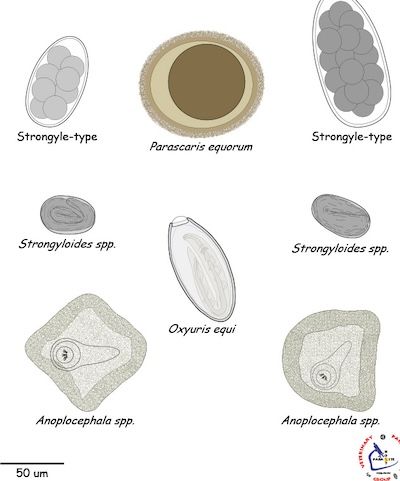Worm Count - Intestinal (Gut) Worms
Test your pets faeces for the presence of worm egs before spending out on or giving drugs to kill worms.
You can read more about my recommended parasite control on these pages
Faecal Egg Count (FEC) is a method of determining how many internal parasite eggs are present in a particular dung sample. It may also be possible to determine the different types of worms or other parasites present.
If eggs are found in a faecal sample it shows that worms are present in the animal.and you should get a wormer, herbal or pharmaceutical for your pet. We will get a copy of the results and can advise.
Intestinal worms include
Dog & Cat Roundworm
Roundworms are canine common internal parasites in dogs. Resembling spaghetti, adult worms are three to four inches long. There are several ways dogs can become infected.
Dog & Cat Hookworm
Hookworms are much smaller than roundworms—less than an inch long—and reside primarily in the small intestine. Because they feed on an animal’s blood, hookworms can cause life-threatening aenemia. Hookworm eggs are passed in the stool and hatch into larvae, and dogs can become infected either through ingestion or skin contact. Please note, hookworms are more common in dogs than cats.
Dog & Cat Tapeworm
Long and flat, tapeworms are segmented parasites and range from 4 to 28 inches in length. An infestation can cause vomiting or weight loss. Dogs acquire tapeworms by ingesting an intermediate host, like an infected flea or rodent. When dogs are infected, tapeworm segments—actual pieces of the worm that resemble grains of rice—can often be seen on the fur around a dogs hind end.

